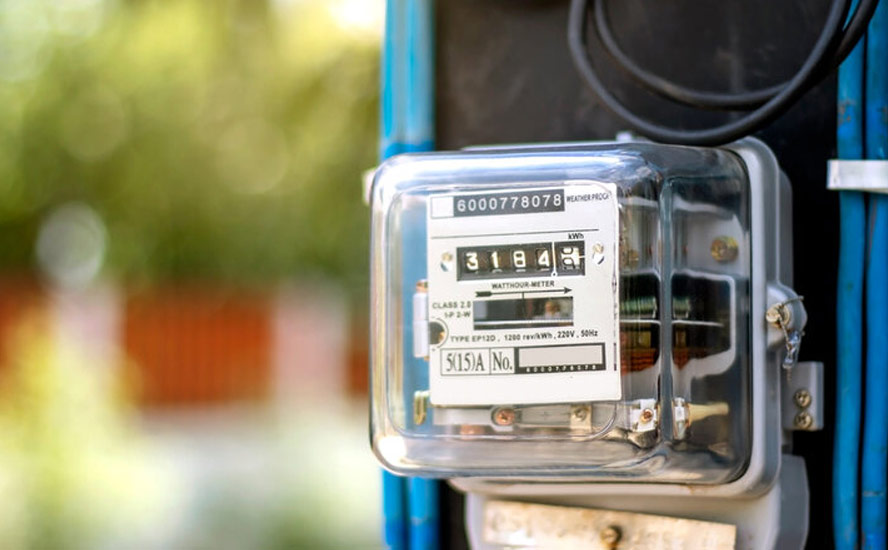FluroTech pops on US distribution agreement

2019.12.14
Investors in FluroTech (TSX-V:TEST, OTCQB:FLURF) saw the value of their shares spike suddenly on Tuesday after the Canadian cannabis tester announced a US distribution deal.
The non-exclusive agreement with CaryLand, LLC, out of Boulder, CO, includes a commitment by CaryLand to purchase a minimum of four CompleTest devices per month for a year, starting in January 2020.
FluroTech’s stock jumped 25% on the news, to close at $0.20/share on the TSX Venture Exchange.
CaryLand provides mobile and lab-based testing technologies and consulting solutions to the agriculture, cannabis and hemp industries. CEO Frank Kogen and COO Eric Jarvis said their initial focus is to introduce the portable testing kits to federal, state, and municipal regulatory and law enforcement agencies, to aid in distinguishing cannabis from hemp plant material to meet USDA and DEA guidelines.
The new USDA national regulatory framework sets out procedures for sampling and testing THC levels in plants. Farmers will be required to have samples of their hemp taken by a USDA-approved agent within 15 days of harvest. Those samples will then be tested in DEA-registered labs to confirm whether the amount of THC, the active ingredient in marijuana that causes the “high”, exceeds 0.3%, the legal line between hemp and cannabis.
“We believe that CaryLand has the ability to transact in multiple US states which lines up with FluroTech’s aim to work with various distribution networks,” said Rex Kary, FluroTech’s COO. “Broadening the addressable market to include those in charge of regulation enforcement and expanding the CompleTest market opportunity, advances FluroTech’s objective to be recognized as the standard testing device in multiple sectors impacted by hemp legalization.”
Cannabis testing
Currently there is no universal method for testing cannabis products. But as regulated cannabis markets continue to emerge in North America (Canada and 11 US states now have legal marijuana, sold for medicinal and recreational purposes), there is a growing need for a system of rapid and effective cannabis testing.
The testing market is pegged at $300 million in Canada – just over $600 million in the United States, and $2.75 billion worldwide.
Of great interest to the dispensary and consumer is the THC level in cannabis. Or, in the case of CBD products, the amount of cannabidiol. Some cannabis consumers want high THC content in their bud, while others prefer something less potent. This is mirrored with buyers of CBD products.
Early testing has its advantages, well before the final test for potency is conducted on the batch by Health Canada-approved labs.
Frequent, regular testing enables growers to identify pests or contaminants (heavy metals, insecticides, herbicides, mold), early on, and to optimize their crops, making them more profitable. It also gives consumers more confidence that the company they are buying from, delivers a quality, contaminant-free product that also offers consistent potency. The worst kind of publicity for a licensed marijuana producer (LP) is the discovery of a tainted crop that has to be pulled from shelves.
The need for testing has become even more relevant in the wake of Canada’s legalization of cannabis edibles in October. The new regulations include inhalable extracts, foods, beverages and topical applications like lotions.
The edibles market is large enough to make an LP salivate. According to a report from BDS Analytics, North American consumers spent USD$1 billion on edibles in 2017. The market is expected to grow to $4.1 billion by 2022. Since the first wave of legalization, 11% of Canadians say they consume edibles, according to CTV News. It names a recent Deloitte report suggesting edibles will be worth $2.7 billion a year in Canada, representing 60% of the legal cannabis market.
Another important sub-market of cannabis testing is the vaping industry. Cannabis inhalation using vaping devices (“vapes”) has become a popular way to consume pot and a (perceived) healthier option than smoking a joint. In 2018, cannabis-legal US states found these devices were the second-largest category of sales at 21%, behind dried bud (46%) and edibles at 11%, according to a Deloitte study. There have been a number of vaping deals struck this year including between Vancouver-based Auxly Cannabis Group receiving a $123-million investment from tobacco giant Imperial Brands; and a partnership struck between Pax Labs Inc. and four Canadian licensed producers.
But this market success has been overshadowed by health concerns. Five Americans have died and there have been over 450 cases of respiratory illnesses linked to vaping, prompting an investigation. It’s presently unclear whether the problems are due to vaping itself or the substances in vape cartridges. A possible culprit is Vitamin E acetate, found in topical and dietary supplements.
Depending on the outcome of the US investigation, sales of vapes and their additives will be affected especially as Canada prepares to legalize new categories of cannabis products including liquid concentrates for vaping.
Legalization of liquid cannabis concentrates would almost certainly have to include a testing component given vaping’s links to respiratory illness.
In a November ‘Cannabis’ report by Canaccord Genuity, the authors state that In our view, recent vape health issues should act as an additional accelerant for testing growth as regulators enhance their safety and enforcement efforts, and industry stake holders address consumer concerns and shore up supply chains.
FluroTech (TSX-V:TEST, OTCQB:FLURF)
FluroTech is the first mover in cannabis testing with portable spectroscopy analytical testing devices.
CompleTest uses spectroscopy and fluorescence to measure the content of a given attribute including CBDA and THCA, which are the acid forms of THC and CBD present in cannabis plants before combustion or vaporization.
The company will be releasing a test for mold, pesticides and heavy metals as well as tests for THC and CBD for extracts and processed products. The device has been commercialized.
TEST’s revenue model involves selling testing devices to licensed growers, retailers, regulatory/ law enforcement agencies, and companies that do drug testing. The buyer purchases a testing device plus a “scope” that slots into the device for each type of test THCA/CBDA, pesticides, heavy metals, etc. Each test or assay (“lab kit”) is priced individually or bundled per month.
The company is also pursuing the use of CompleTest in the hemp market for CBD products, and “biomarking” – whereby a compound is placed into every plant grown by a licensed producer that can be tracked throughout the plant’s life, all the way from processing to the end product that is consumed.
Unlike getting a sample tested in a standard, third party lab, CompleTest can return a result within minutes – versus days or weeks. This is a big advantage to cannabis growers because it vastly reduces wait times. It also allows growers to test plants at any time during the growth cycle, instead of only at the final stage when the product must be tested to meet government regulations before being sold.
$23B market potential
The legalization of cannabis products is still big news in Canada, but the blue-sky potential for most companies in the pot space is south of the border.
By 2022 the legal cannabis market in the US is expected to reach $23.4 billion. Canada’s share will be $5.5 billion, about a quarter the size of the US market.
The fact is, even though the US federal government still prohibits the growing and distribution of marijuana, 11 states have fully legalized and more are planning to do so this year and next. Pot is available for medical use in 33 states.
The enormity of the US cannabis market makes it tantalizing for Canadian companies to expand into. In that way selling cannabis to the US is no different than selling lumber, tires or steel. The ideas and testing grounds may be in Canada, but it’s state-side that the real money is to be made.
Growth will be driven by recreational, not medical use.
Not only is the US expected to have a far larger base of cannabis buyers and sellers, it’s where all the branding will likely take place. Canadian cannabis legislation prohibits most marketing and branding, with Health Canada wanting products to be sold in plain packaging so as not to glamorize the drug or make it appealing to children.
If and when Big Tobacco gets its hands on cannabis, expect sales to take off, by distancing slick American packaging from Soviet-style Canadian wrapping.
Conclusion
I’m keeping an eye on what’s happening with cannabis legalization in the States, especially with the 2020 presidential election nearing. If the US follows Canada’s lead in sanctioning nation-wide medical and recreational pot legalization, the opportunity for Canadian small-caps selling cannabis products will be huge.
Even with cannabis still illegal under federal statute, FluroTech managed to score a distribution deal with a US company for its CompleTest device – a slick product that is proving to be in high demand as barriers to cannabis legalization keep dropping.
FluroTech
TSX-V:TEST, OTCQB:FLURF
Cdn$0.205 2019.12.14
Shares Outstanding 54,273,814m
Market cap Cdn$11,126,131m
TEST website
Richard (Rick) Mills
subscribe to my free newsletter
aheadoftheherd.com
Ahead of the Herd Twitter
Legal Notice / Disclaimer
Ahead of the Herd newsletter, aheadoftheherd.com, hereafter known as AOTH.
Please read the entire Disclaimer carefully before you use this website or read the newsletter. If you do not agree to all the AOTH/Richard Mills Disclaimer, do not access/read this website/newsletter/article, or any of its pages. By reading/using this AOTH/Richard Mills website/newsletter/article, and whether or not you actually read this Disclaimer, you are deemed to have accepted it.
Any AOTH/Richard Mills document is not, and should not be, construed as an offer to sell or the solicitation of an offer to purchase or subscribe for any investment.
AOTH/Richard Mills has based this document on information obtained from sources he believes to be reliable but which has not been independently verified. AOTH/Richard Mills makes no guarantee, representation or warranty and accepts no responsibility or liability as to its accuracy or completeness. Expressions of opinion are those of AOTH/Richard Mills only and are subject to change without notice. AOTH/Richard Mills assumes no warranty, liability or guarantee for the current relevance, correctness or completeness of any information provided within this Report and will not be held liable for the consequence of reliance upon any opinion or statement contained herein or any omission. Furthermore, AOTH/Richard Mills assumes no liability for any direct or indirect loss or damage or, in particular, for lost profit, which you may incur as a result of the use and existence of the information provided within this AOTH/Richard Mills Report.
AOTH/Richard Mills is not a registered broker/financial advisor and does not hold any licenses. These are solely personal thoughts and opinions about finance and/or investments no information posted on this site is to be considered investment advice or a recommendation to do anything involving finance or money aside from performing your own due diligence and consulting with your personal registered broker/financial advisor. You agree that by reading AOTH/Richard Mills articles, you are acting at your OWN RISK. In no event should AOTH/Richard Mills liable for any direct or indirect trading losses caused by any information contained in AOTH/Richard Mills articles. Information in AOTH/Richard Mills articles is not an offer to sell or a solicitation of an offer to buy any security. AOTH/Richard Mills is not suggesting the transacting of any financial instruments but does suggest consulting your own registered broker/financial advisor with regards to any such transactions
Legal Notice / Disclaimer
Ahead of the Herd newsletter, aheadoftheherd.com, hereafter known as AOTH.Please read the entire Disclaimer carefully before you use this website or read the newsletter. If you do not agree to all the AOTH/Richard Mills Disclaimer, do not access/read this website/newsletter/article, or any of its pages. By reading/using this AOTH/Richard Mills website/newsletter/article, and whether you actually read this Disclaimer, you are deemed to have accepted it.


























